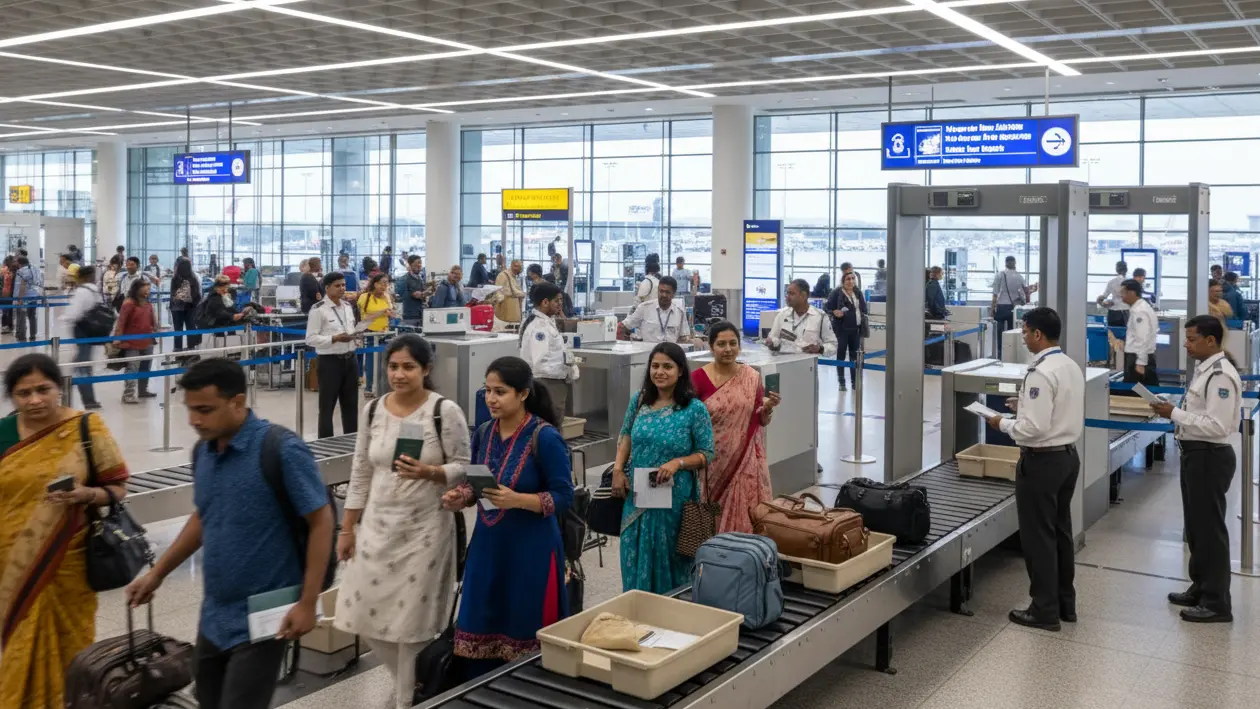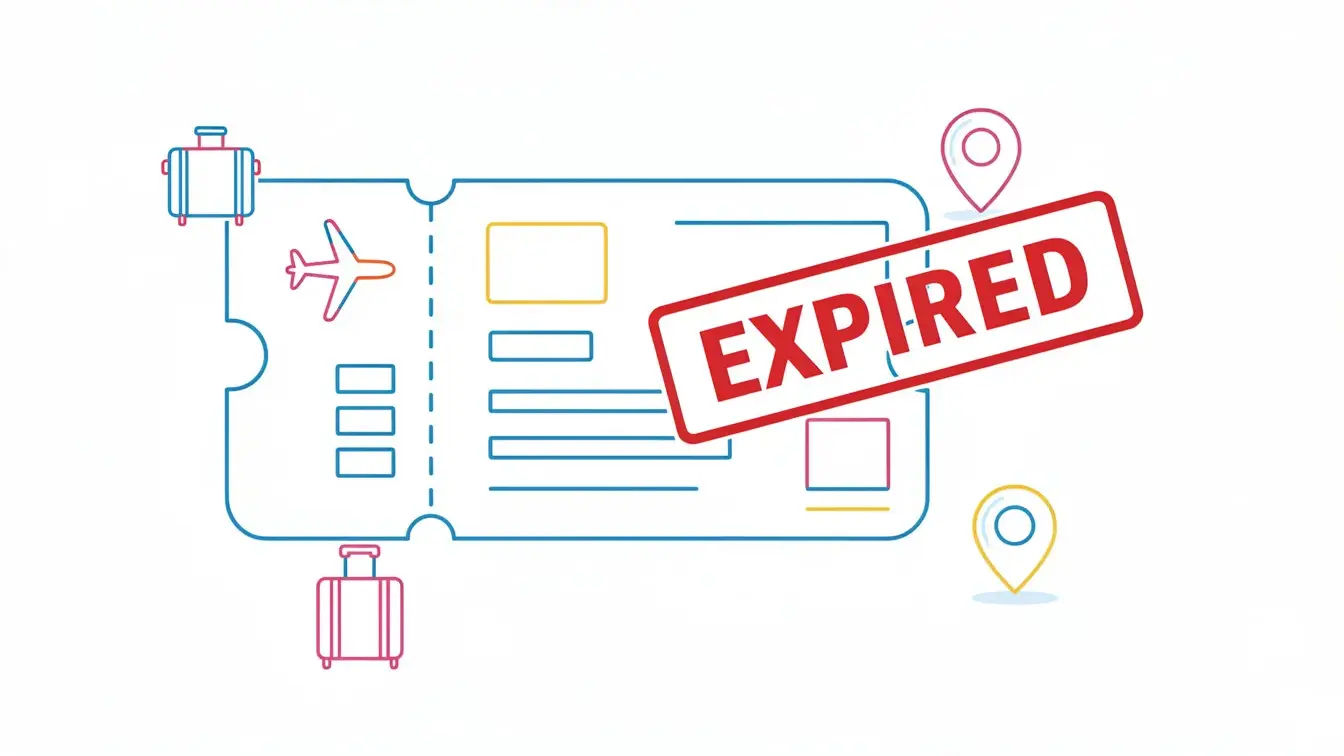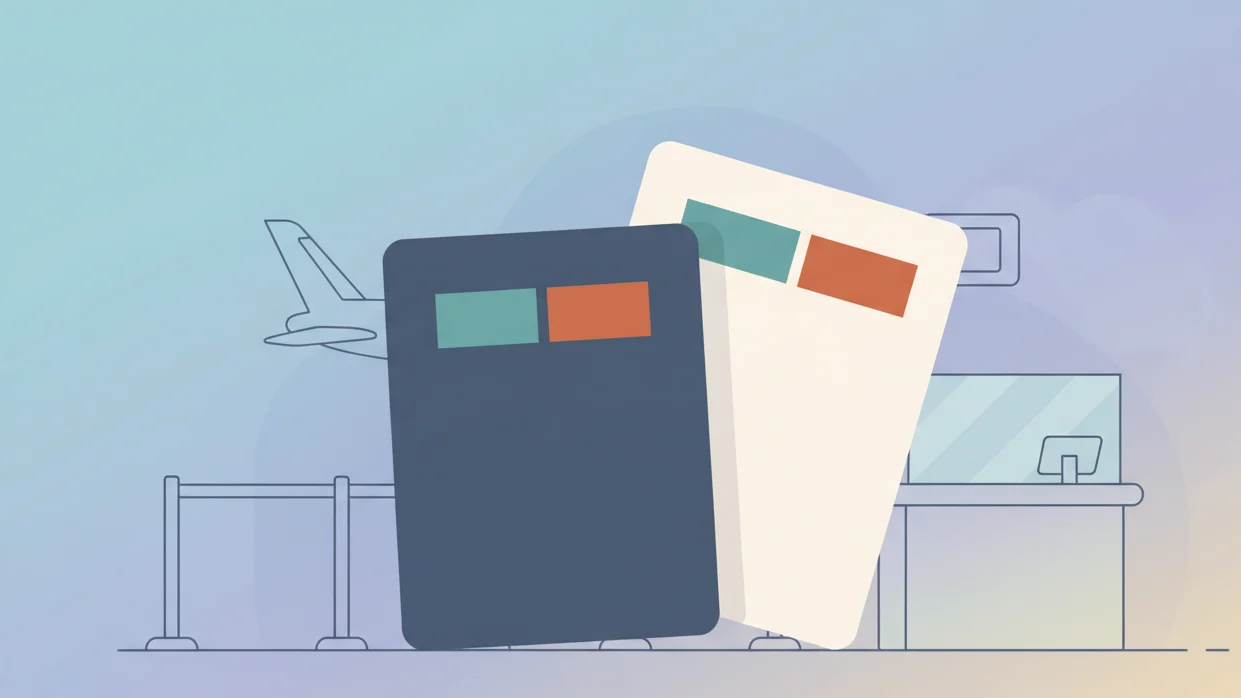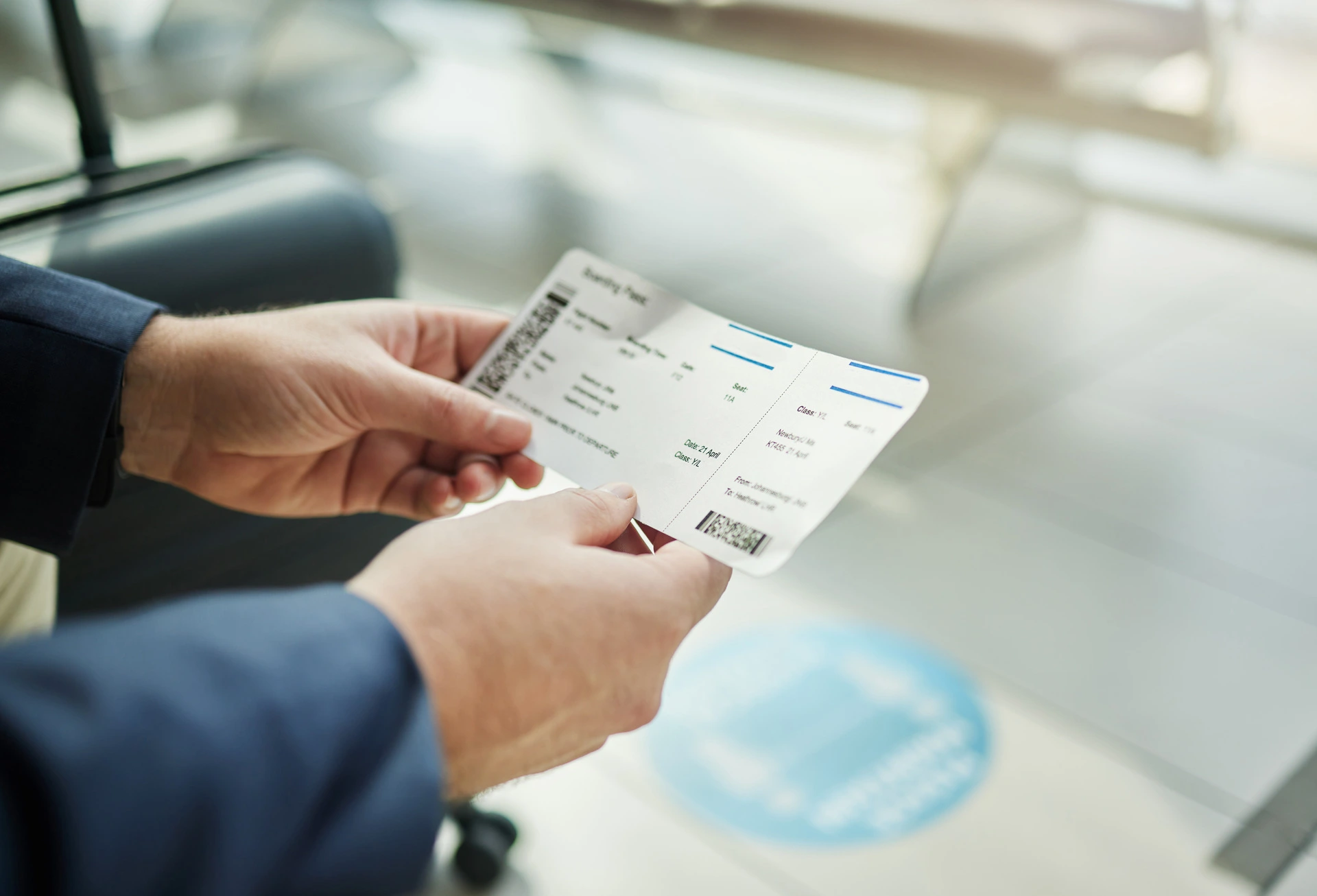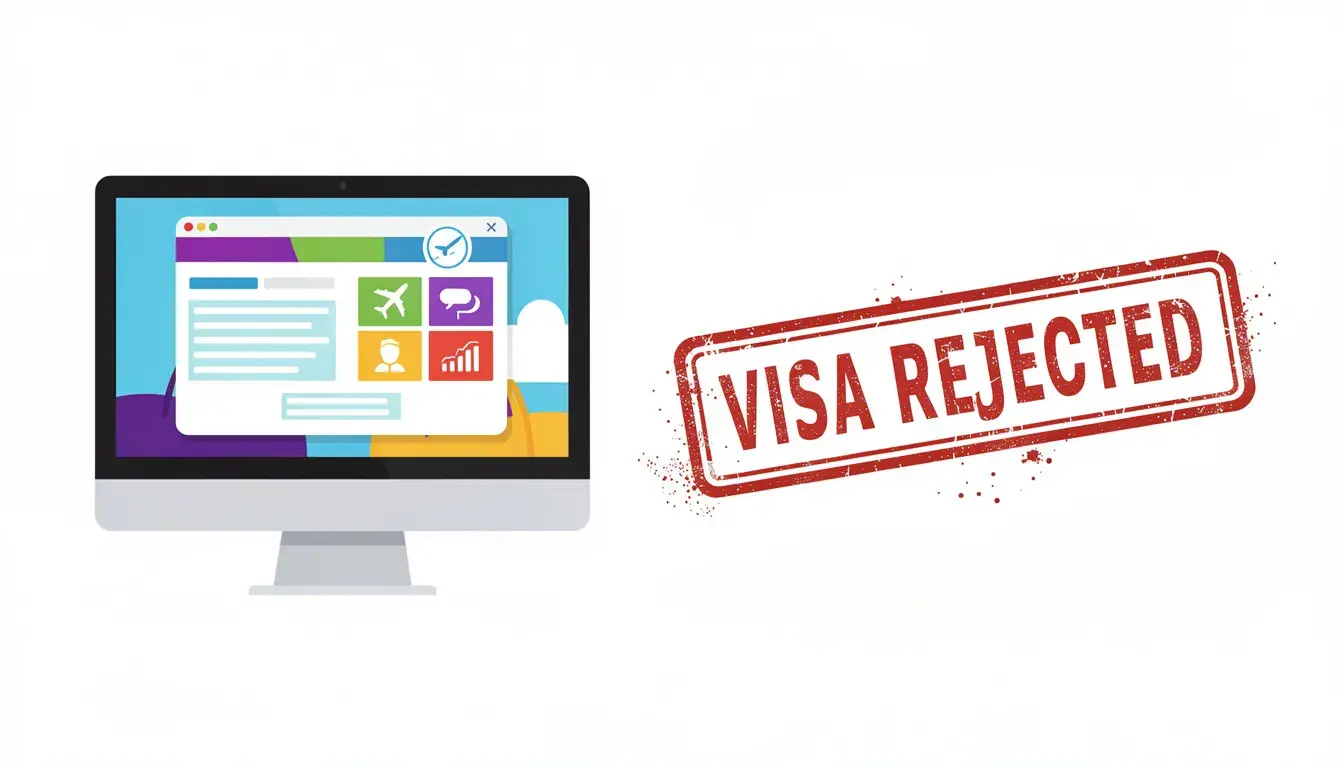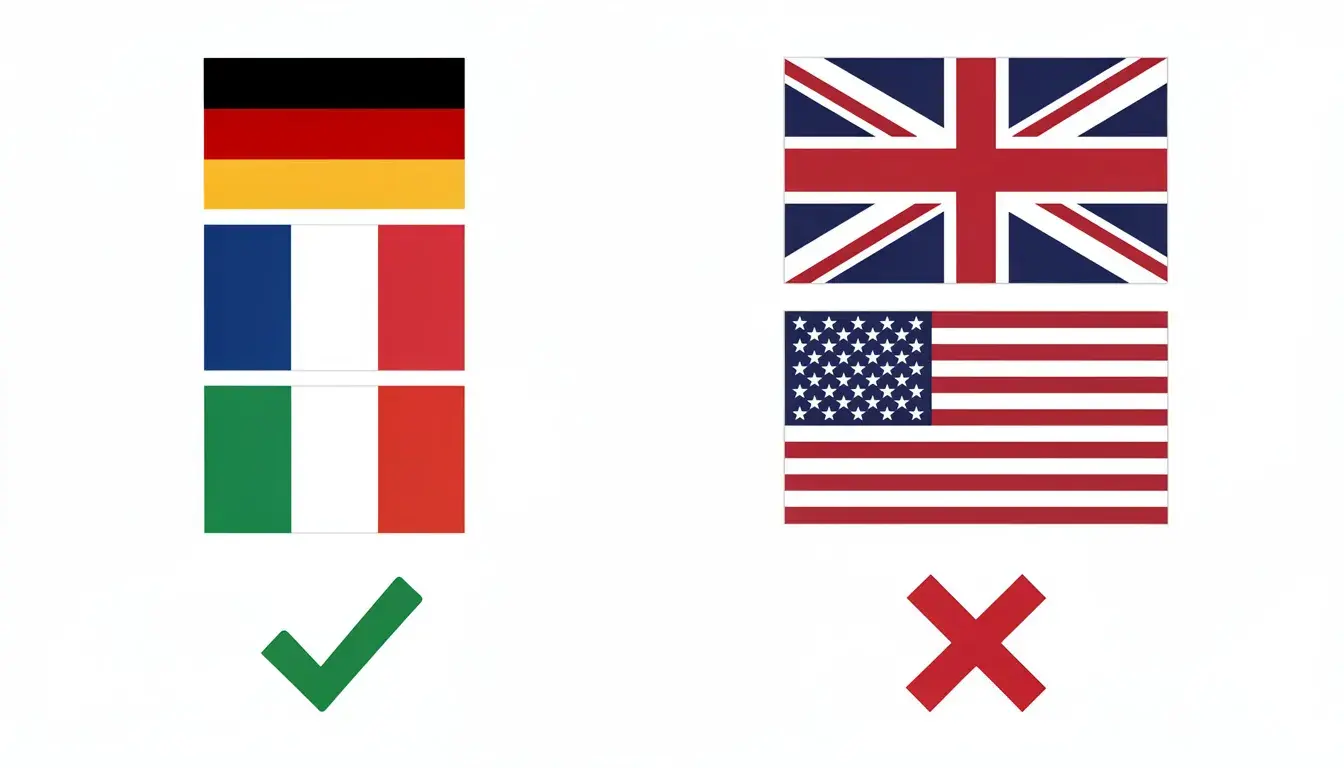Schengen Visa Secrets: Why Onward Tickets Are Your Key to Approval
Many Indian travelers walk into their Schengen visa appointment with solid bank statements, confirmed hotels, and a tidy cover letter, yet the application still feels incomplete. What usually tilts the decision either way is the onward or return ticket—often secured as a dummy ticket. It quietly answers the one question every visa officer is trained to evaluate: Do you have a clear, credible plan to leave Europe on time? A dated, verifiable exit plan shows structure, seriousness, and consistency in a way no other document can. For more insights, check our FAQ or explore related topics in our blogs.
What you need is a sharper understanding of why this single document carries so much weight, how consulates interpret it, and how airlines and border officers rely on it too. When you understand that full picture, preparing the right onward ticket becomes much easier—and far more strategic. Learn about our team's expertise on the About Us page. Secure your visa with ease by using our reliable dummy ticket booking.
An onward ticket for Schengen Visitor Visa is one of the most important documents visa officers use to confirm your travel intent and your commitment to leave the Schengen Area before your permitted stay ends. Although embassies do not require you to buy a real flight before approval, they expect a verifiable onward or return reservation that shows clear exit plans. A dummy onward ticket with a real PNR from dummyflights.com meets Schengen requirements, strengthens your file, and helps avoid rejection reasons such as “unclear travel plan” or “insufficient proof of return.”
Last updated: November 2025 — aligned with EU Visa Code & Schengen embassy submission guidelines.
Why Consulates Treat Your Exit Plan As A Window Into Your True Intent
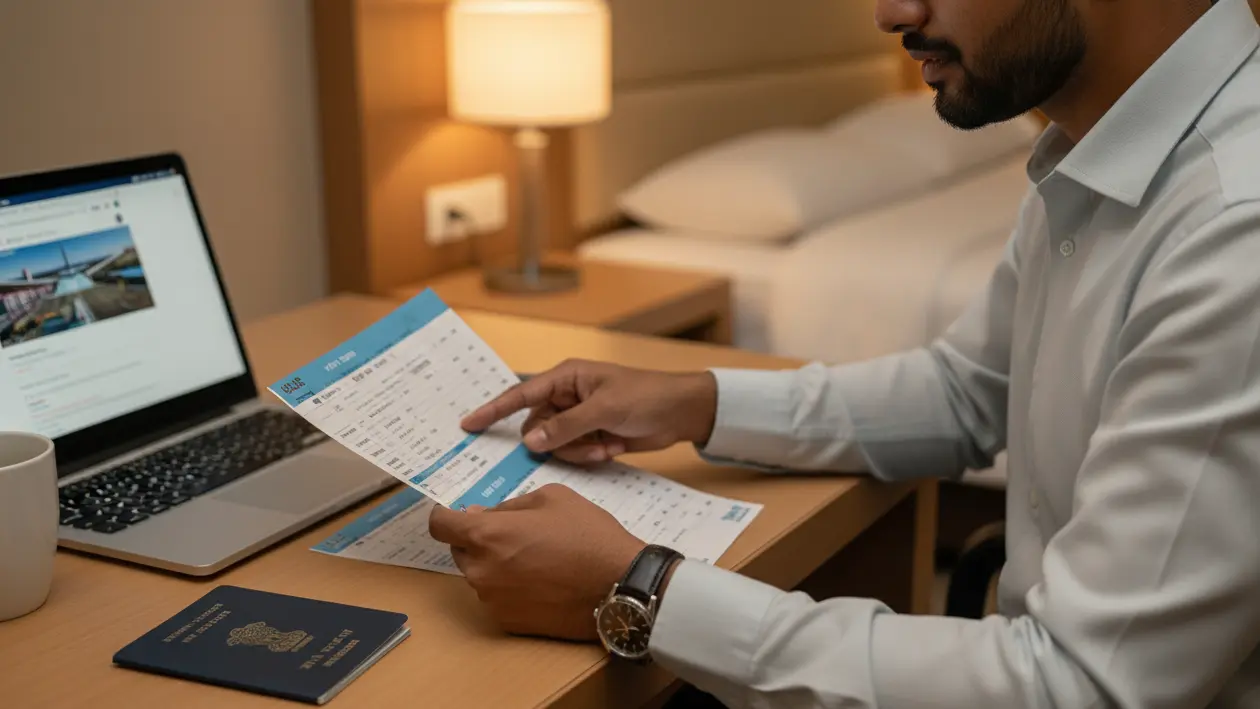
Before we dive into the details, it’s important to understand the mindset of the person reviewing your file. A Schengen visa officer doesn’t see your trip the way you do. You’re planning a holiday. They’re assessing risk. Your onward or return ticket becomes one of the clearest signals of what you genuinely intend to do once you land in Europe. Make your travel plans stress-free and book a dummy ticket. This document, often a flexible dummy ticket, provides the proof needed without committing to expensive real bookings upfront.
Expanding on this, consulates from countries like France, Germany, and Italy all follow the common Schengen Code, which emphasizes proof of onward travel as a core requirement. According to guidelines from SchengenVisaInfo.com, failure to provide this can lead to immediate rejection. For Indian applicants, where overstay rates are monitored closely, a dummy ticket serves as an affordable, verifiable solution that aligns perfectly with these rules.
How A Firm Departure Date Strengthens Your Story
When a visa officer opens your application, one of the first things they look for is clarity. They need to see when you expect to arrive, where you plan to spend your time, and most importantly, when you intend to leave. A dated onward ticket tells them your trip has structure.
Many Indian applicants underestimate this. They assume the cover letter or hotel bookings show enough planning. But hotel reservations only prove where you’re staying. Bank statements show how you’re funding the trip. An onward ticket, however, ties the entire story together. It shows you’ve thought about the trip from start to finish instead of leaving your return vague or last-minute.
To further illustrate, consider a typical 10-day trip to Paris and Rome. Your dummy ticket should show arrival in Paris on Day 1 and departure from Rome on Day 11. This alignment not only satisfies the officer but also prepares you for any itinerary questions during the interview. Without it, even strong financial proofs can fall short.
Why A Verifiable Booking Lowers Overstay Suspicion
Schengen consulates take overstays seriously. Officers know that tourist visas are sometimes misused, especially when applicants travel from countries where long-term immigration is in high demand. This is one reason they rely heavily on your onward ticket as a credibility filter.
A verifiable itinerary gives them two quick assurances.
- The trip is planned, not improvised.
Last-minute or open-ended plans often raise internal flags. A fixed departure shows predictability. - Your PNR can be checked instantly.
When the booking shows up in the airline system, it signals authenticity. Officers trust documents that they can verify in seconds.
A non-verifiable PDF does the opposite. It introduces doubt. Consulates can pull up the airline system in front of them and check if your PNR exists. When it doesn’t, the officer starts questioning your overall application, not just your return ticket. This is why applicants with weak onward travel documents often face longer scrutiny, additional document requests, or even refusals. Opting for a dummy ticket from a service like DummyFlights ensures your PNR is real and checkable, reducing these risks significantly.
When Dates Don’t Align, Consulates Assume Something Is Off
Consistency is crucial. Officers compare your dates across at least five documents.
- Visa application form
- Cover letter
- Hotel bookings
- Day-by-day itinerary
- Onward or return ticket
If your return date comes two days before your final hotel booking, it looks careless. If your accommodation ends three days before your flight, it looks suspicious. And if your leave letter or university schedule doesn’t match the trip timeline, the officer assumes your planning is incomplete.
Indian applicants often face this issue because visa appointments shift, and they forget to update the entire set of documents. Even a small mismatch can look like an unreliable travel story. Consulates aren’t judging your ability to travel. They’re judging how well you’ve prepared a coherent, believable plan. To avoid this, use tools like calendar syncing or checklists—resources we cover in our blogs.
How Your Exit Plan Helps Officers Validate Your Home-Country Ties
A strong onward ticket doesn’t only show that you plan to leave Europe. It also connects directly to your life in India. Officers check whether:
- Your return date aligns with your approved leave from your employer
- Your family obligations match the duration of your trip
- Your financial documents support the number of days you plan to stay
- Your trip ends before important milestones like semester start dates
Your home ties don’t stand alone. They’re interpreted in relation to your exit date. For example, if your return ticket is booked for ten days after your employer-approved leave ends, the officer will immediately wonder why. Likewise, if you say you’re traveling for 12 days but your onward ticket shows 21, the discrepancy raises unnecessary questions.
This is why your departure date becomes the anchor of your overall file. It helps the visa officer connect the dots between your personal ties, your travel plan, and your financial readiness. Strengthening these ties with a reliable dummy ticket can be the difference between approval and a request for more info.
A Return Ticket Shows Respect For The Rules—And That Matters
Schengen countries want visitors, not overstayers. When an applicant presents a clean, verifiable, date-specific exit plan, it signals respect for EU entry rules. Officers appreciate applicants who make their job easier by providing documents that show clarity rather than confusion.
Your onward ticket is more than a logistical detail. It is the document that reassures the consulate you’re not visiting with an open-ended agenda, you won’t disappear into Europe, and you understand your responsibility to exit on time.
When you integrate that mindset into your application, your onward ticket stops being just a piece of paper. It becomes a strong, silent argument in your favor—one that helps your entire Schengen visitor visa application feel complete, credible, and thoughtfully prepared. For further reading on visa preparation, visit our FAQ.
How Your Onward Ticket Shapes The Journey Before You Even Fly
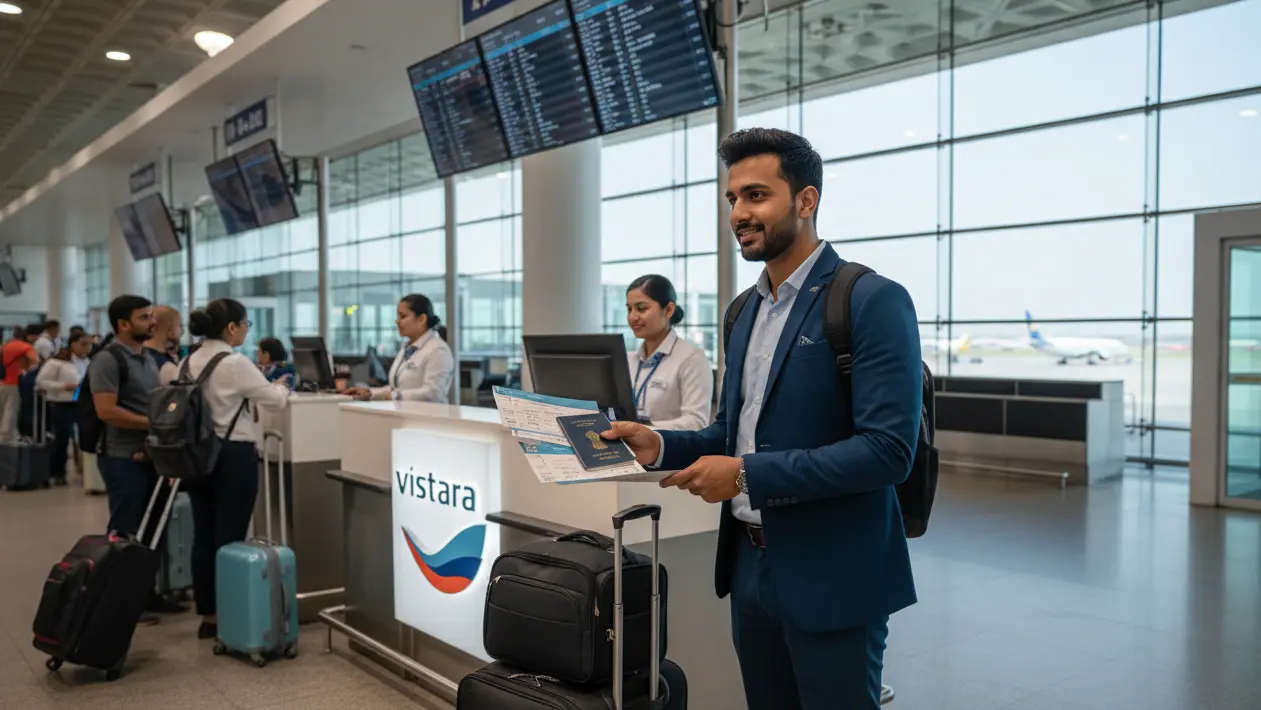
Once your visa is approved, you might think the onward ticket has served its purpose. But for Indian travelers heading to Europe, this single document continues to influence what happens at the airport, during check-in, and even at the first Schengen border you cross. Airlines and immigration officers care about onward travel just as much as consulates do, and knowing how they view it helps you avoid unnecessary hiccups on the day of travel.
In fact, under the Schengen Borders Code, carriers are liable for fines up to €5,000 per passenger if they transport someone without proper documentation. This liability drives rigorous checks, making your dummy ticket not just a visa tool but a travel essential.
Airlines Don’t Just Check Your Passport. They Check Your Plan, Too.
Most travelers expect a simple passport scan at check-in, but airlines have their own responsibilities under European entry rules. If they fly someone who doesn’t meet Schengen requirements, they can be fined and forced to fly the passenger back at their own expense. That risk makes airline staff extremely cautious.
This is why airline agents frequently request proof of onward travel from passengers flying into the Schengen Area. They aren’t asking to annoy you. They’re asking to protect themselves from penalties.
For Indian flyers, this is especially important because carriers often deal with passengers who arrive without clear exit plans. If your booking doesn’t look valid or verifiable, an airline agent can deny boarding on the spot. It doesn’t matter if your visa is stamped in your passport. The airline’s job is to ensure you meet the entry conditions at the destination airport.
This is why having a valid, verifiable onward ticket printed or saved offline can save you from last-minute panic at the check-in counter. Services providing dummy tickets ensure these are PNR-verified, mimicking real bookings seamlessly.
Why Immigration Officers Care So Much About Your Return Itinerary
Immigration at the first Schengen entry point—whether that’s Paris, Frankfurt, Amsterdam, or Madrid—is known for asking direct, practical questions. Their goal is simple: confirm that your travel story matches the documents you carry.
An onward ticket helps you sail through these checks because it answers their biggest question upfront. When they see a clear departure date, they instantly understand your plan without needing long explanations.
It becomes even more useful when your trip involves multiple cities. Officers want to see how you intend to move from one country to another and eventually exit the Schengen Zone. A verifiable itinerary shows your path from arrival to departure and gives them confidence that nothing looks unplanned or suspicious. For multi-city itineraries, updating your dummy ticket dates is straightforward and cost-effective.
Printed Or Offline Copies Are Not Optional For Indian Travelers
Many Indian travelers rely on WhatsApp images, screenshots, or emails that require internet access. This works until your roaming plan doesn’t activate or the airport Wi-Fi refuses to connect. Immigration officers won’t wait while you troubleshoot your phone.
Carrying printed copies of your onward ticket avoids these issues completely. Even if you prefer digital copies, save them offline. Airlines and immigration appreciate travelers who are prepared.
This is especially important when you’re entering through busy hubs like Frankfurt or CDG. Officers here process hundreds of passengers quickly and appreciate applicants who present documents immediately without hesitation. Pro tip: Laminate your prints for durability during travel.
When Temporary Bookings Still Do The Job At Airports
Some travelers worry that a reservation-based onward ticket won’t work at check-in or border control. In most cases, it absolutely does, as long as the booking is genuine and can be verified in the airline system. Airlines primarily want to see a confirmed return or onward flight. They don’t require you to buy a fully paid ticket upfront.
This is why travelers with flexible plans or those waiting for final visa approval often rely on reservation-only tickets. These bookings meet airline requirements because they display a PNR and look identical to paid tickets in the system during their validity window.
Just make sure the validity hasn’t expired by the time you travel. A reservation that drops out of the system can cause trouble during check-in, even if your visa is perfectly valid. With dummy tickets, extensions are often available for a nominal fee, providing peace of mind.
Common Airport Scenarios That Catch Indian Travelers Off Guard
Airports see recurring problems with onward travel documents—especially among first-time travelers from India. A few common situations include:
- The PNR has expired.
This often happens when travelers create a reservation weeks before the flight but forget to refresh it. - The booking is only a PDF with no verifiable PNR.
Airline agents reject such documents because they can’t cross-check them in their systems. - The traveler only shows screenshots.
Screenshots sometimes hide essential details like booking status or timestamp, which makes airline staff suspicious. - The return flight departs from a different city than the itinerary suggests.
For example, flying home from Rome while all your bookings and plans end in Munich.
These issues are avoidable when you understand how airlines and immigration interpret onward travel. They’re looking for coherence, not complications. Regularly reviewing your documents, as advised in our About Us guide, can prevent these pitfalls.
Your Onward Ticket Makes Travel Smoother Than You’d Expect
While it might seem like a technical requirement, your onward ticket is actually a stress-relief tool. It reduces questioning at immigration, helps you glide past airline checks, and reassures every authority you meet along the way that your plans are well thought out.
When your return date, accommodation plans, and travel route align perfectly, you move through each travel stage with confidence. You don’t have to over-explain anything, and your documents speak for you. For Schengen travel, that clarity is your biggest advantage.
The effort you put into securing a clean, verifiable onward ticket pays off the moment you reach the airport—and again when you step into Europe. 👉 Order your dummy ticket today to ensure seamless travel.
Schengen Visitor Visa: When Your Papers Do the Talking
Before an officer even reads your cover letter, your supporting documents begin shaping their impression. For most travelers, this is the moment where things quietly tilt toward approval or refusal. A Schengen visitor visa review moves quickly, and officers rely heavily on how well your file communicates your travel story. If your papers are organized, consistent, and logically connected, the officer sees someone prepared. If not, you inadvertently raise doubts without saying a word. Simplify your Schengen visa process—simply book a dummy ticket.
To build on this, the Schengen Visa Code (Regulation (EC) No 810/2009) outlines that proof of onward travel is mandatory for all short-stay visas. This regulation ensures uniformity across the 27 member states, making your dummy ticket a universal key to compliance.
Why Consistency Matters More Than Volume
A strong Schengen visa file isn’t about piling on as many papers as possible. It’s about making sure every document you include matches your dates, your itinerary, and your stated purpose. Many Indian nationals unknowingly weaken their file by adding unnecessary paperwork or mixing up dates. Officers don’t have time to decode confusion. They look for clarity.
Your valid passport should be easy to read with enough blank pages, your itinerary should align with your accommodation letters, and your travel dates should match your leave approval or personal commitments in your home country. When these details line up neatly, the officer feels confident approving your short-stay Schengen visa. Incorporating a dummy ticket early in your planning phase ensures this alignment from the start.
Schengen Visa Application: Building a File That Feels Logical
A Schengen visa application is reviewed under pressure. Officers handle dozens of files daily, which means your paperwork should be clean, consistent, and simple to assess. Your Schengen visa application form should echo the same dates, purpose, and accommodation details shown in your supporting papers. Even small inconsistencies—like mismatched hotel dates or a different intended date of return—can slow the assessment.
If the applicant intends to visit multiple Schengen countries, keep that plan clear. When your travel makes sense on paper, your chances rise naturally. For instance, if planning a loop from Berlin to Vienna to Zurich, your dummy ticket should reflect the final exit from Zurich to avoid any perceived gaps.
Organizing Your Paper Trail the Smart Way
Think of your visa application as a story. The officer should be able to move from one document to the next without stopping to figure out what you meant. That’s where many travelers lose ground. Overcomplicating the file, mixing old and new itineraries, or submitting unclear financial statements creates confusion.
Start with identification documents. Follow with your itinerary. Then add accommodation confirmations, travel insurance, proof of leave or business stability, and any additional documents needed for your category. Everything should support your intention to stay temporarily and exit the Schengen area on time. Organizing digitally first, then printing, can streamline this—tips we share in our blogs.
Visa Valid Checks: Why Small Details Matter
One of the most overlooked parts of a Schengen visitor visa review is how officers verify the documents that define your stay. Your entry and exit dates must match your itinerary. Your accommodation should cover the entire duration. Your Indian passport should be valid long enough beyond your return.
Officers also check whether your financial means match the cities you plan to visit. If the numbers feel unrealistic, they request clarifications or refuse the application. Even though this seems simple, it’s one of the top reasons short-stay Schengen visa files face delays. A well-timed dummy ticket bridges these small but critical gaps.
Apply for a Schengen: The Documents That Anchor Your Case
When you apply for a Schengen visa, your personal history helps officers understand how grounded you are in India. This includes employment stability, property ties, family responsibilities, or education commitments. If you’re traveling with a family member, attach whatever relationship documents are required.
Every paper you submit should help confirm that your stay is temporary. Officers don’t rely on verbal assurances during your appointment. They rely on what your documents. To enhance this, pair your ties with a dummy ticket that reinforces your return commitment.
Indian Passport and Your Identity Footprint
Your Indian passport is the anchor of your entire file. Make sure the first and last page are clearly visible and undamaged. Officers need to verify identity, nationality, and previous travel history quickly. If your passport has marks, smudges, or unclear entries, it may slow your processing time.
Indian nationals often overlook passport conditions, but it’s one of the first things officers check. Ensure at least six months validity post-return, as per standard ICAO guidelines.
Schengen Area Proof: Showing Alignment in Your Plans
When you mention which Schengen member states you plan to visit, your itinerary, hotel bookings, and flights must match the route. Officers cross-verify these details. If something doesn’t add up—wrong airport, mismatched nights, unclear transit—it triggers further questions.
This is especially true when crossing multiple countries. A clean, logical path across the Schengen area reduces doubts instantly. Your dummy ticket acts as the capstone, confirming the exit route.
Short Stay Schengen Visa: Keeping It Tight and Tidy
A short-stay Schengen visa is meant for brief travel. That means your documents must reflect realistic dates, sensible financial means, and a stay period that aligns with the rules. Submitting more than required or mixing unnecessary papers only complicates your assessment.
Stick to what supports your story. The simpler and more aligned your documents are, the stronger your application becomes. Aim for under 90 days in any 180-day period to stay compliant.
German Missions and the Importance of Precision
If you’re applying through German missions, expect strict checks. They emphasize accurate paperwork, original documents when needed, and detailed travel justification. Their inspections are thorough, but predictable. If your file is consistent, your evaluation moves smoothly.
They look at your proof, your itinerary, and your supporting papers with a clear checklist. This is why preparation matters. German consulates process over 200,000 Indian applications annually, so standing out with precision is key.
Processing Time and Final Recheck Before Submission
Before you submit your application, take a final pass through your file. Check your dates from top to bottom. Reconfirm your accommodation. Make sure your passport is valid well beyond your return. Every document should support the next.
A clean file shortens your processing time and reduces the chances of unnecessary questions or delays. Average times range from 15-30 days, but inconsistencies can double that.
Avoiding Common Pitfalls That Can Derail Your Visa Journey
Even with a solid itinerary and supporting documents, many travelers stumble at the last hurdle: small mistakes that can suddenly appear significant in the eyes of a consulate. For Indian nationals applying for a Schengen visa, being aware of these potential pitfalls can save you weeks of stress and uncertainty.
Statistics from the European Commission show that 12-15% of Schengen applications are rejected annually, with documentation issues being a top cause. Addressing these proactively with a dummy ticket can tip the scales in your favor.
Watch Out for Conflicting Dates and Misaligned Itineraries
One of the most frequent errors involves mismatched travel plans. For example, booking a hotel for seven nights while your onward ticket shows departure after nine nights immediately raises questions about the credibility of your plan.
Officers are trained to notice even subtle inconsistencies. A minor misalignment between flights, accommodation, or leave letters can delay or even result in a visa rejection, despite otherwise solid documentation. Use date-tracking apps to sync everything.
Organize and Print Your Confirmations
Relying solely on digital copies—screenshots or PDFs stored on your phone—can backfire. Airports and consulates often request printed confirmations for verification.
Missing or incomplete documents at the check-in counter or during submission can lead to unnecessary complications. For Indian applicants, where consulates process thousands of cases, even minor gaps can trigger extra scrutiny. Always carry multiples in a dedicated folder.
Double-Check Airport Details
Incorrect airport information is another common oversight. Travelers sometimes mix up departure and arrival cities, list wrong exit airports, or change internal connections without updating their itinerary.
While these adjustments may seem minor, consular officers and airline staff see inconsistencies as a red flag. Misaligned information can result in questioning or delays both during the visa process and at the airport. Verify IATA codes for accuracy.
Ensure Consistency in Supporting Proofs
Supporting documents like accommodation confirmations, travel insurance, or leave letters must match your itinerary. Even small deviations can create doubt.
Consulates expect a coherent story: where you will be, for how long, and how you plan to exit the Schengen area. Misalignment may signal carelessness or uncertainty, both of which reduce your credibility. Cross-reference with a peer review if possible.
Present Clear Financial Documentation
Financial proofs are another frequent area of error. Outdated bank statements, unclear formats, or inconsistent currency presentation can raise questions about whether you have sufficient means for your trip.
Consulates look for transparency and clarity. Even minor errors can result in requests for additional documents or raise doubts about the viability of your visit. Use recent statements covering at least three months, converted to EUR for ease.
Understand the Consequences of Mistakes
Errors in your application go beyond the immediate visa decision. A rejected application may affect future submissions, as consulates maintain records. Repeated inconsistencies can create a perception of unreliability, making subsequent approvals more challenging.
To mitigate, keep records of all submissions and learn from feedback letters, which are often provided upon rejection.
Be Prepared for Airport Verification
Even after visa approval, practical challenges at the airport can derail travel. Airline staff often verify onward tickets or travel confirmations before boarding. Expired reservations, unclear documentation, or solely digital copies can lead to denied boarding, even if your visa is valid.
Boarding denials affect about 1% of flights to Europe from India, per airline reports—mostly due to onward proof issues.
Tips to Minimize Risk
- Double-check every detail: flights, accommodations, leave letters, and financial proofs.
- Print all confirmations: keep them organized and up to date.
- Use a checklist: systematically verify all items before your visa appointment and travel.
- Allow for flexibility: flights may change, hotels may cancel, and visa processing times can shift.
Flexible, verifiable reservations and a coherent plan turn your documents into a compelling story that consulates and airport authorities can trust. Incorporating a dummy ticket early ensures adaptability without compromise.
Planning Smart Pays Off: Your Onward Ticket Is Key
For a Schengen short stay visa, your onward or return ticket is more than a booking; it shows you will leave the European Union within 90 days or before a 180-day period ends and supports your entry permit. When dates on your ticket match other required documents such as proof of residence, marriage certificate, or birth record, you make it easier for the embassy to assess your file, verify biometric data, and justify the visa fee.
Whether you apply for a multiple-entry visa, a national visa, or an airport transit visa for certain countries and international transit areas, a coherent exit plan reduces doubts and delays. Before you fill out forms, consult the embassy website to confirm specific categories, like travellers who receive treatment or plan several visits, and plan your onward ticket for the maximum chance of approval. Save time and avoid last-minute hassles when you book a dummy ticket.
Smart planning also involves budgeting: a dummy ticket costs under $20, versus hundreds for real flights, freeing up funds for insurance or extras. This strategic choice underscores why it's a staple for savvy Indian travelers.
What Travelers Are Saying
Why Travelers Trust dummyflights.com
dummyflights.com has been helping travelers since 2019, specializing exclusively in dummy ticket reservations to provide verifiable proof of onward travel. We've supported over 50,000 visa applicants with instant PDF delivery and 24/7 customer support from our dedicated team in India.
- Years of operation: Assisting global travelers with secure, niche expertise in flight reservations since 2019.
- Scale: 50,000+ visa applications facilitated with zero downtime.
- Support: Round-the-clock assistance via chat, email, and phone from real agents.
- Security: Encrypted payments and immediate, PNR-verified PDFs for peace of mind.
- Expertise: As a registered business focused solely on dummy tickets, dummyflights.com ensures authenticity without the risks of generic services.
Our commitment to transparency and reliability makes dummyflights.com the go-to for Indian travelers seeking trustworthy visa support.
Related Guides
Frequently Asked Questions
What is a dummy ticket for Schengen visa?
A dummy ticket is a temporary, verifiable flight reservation used as proof of onward travel without a full payment commitment.
How long is a dummy ticket valid?
Typically 24-48 hours, but extensions are available up to 30 days with services like DummyFlights.
Can I use a dummy ticket at the airport?
Yes, as long as it's PNR-verified and printed; airlines accept reservations for boarding checks.
Is a dummy ticket legal?
Yes, it's a legitimate tool for visa applications, provided it's not used to deceive authorities.
How much does a dummy ticket cost?
Around $10-20, depending on the route and provider.

